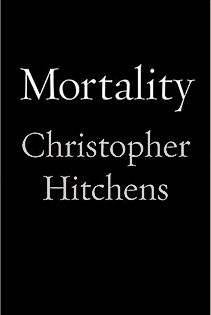 To read Hitchens’ last thoughts, as gathered into a series of award-winning Vanity Fair columns penned between his diagnosis in mid-2010 and his death from esophageal cancer last December, is to realize anew how inimitable he was, how unique his combination of thought, expression and courage. Admirers often see that last quality in Hitchens’ battles with organized religion, especially after his abrupt transfer, in his own words, “from the country of the well across the stark frontier that marks off the land of malady.” Large numbers of Christians announced their intention to pray for Hitchens, but for what end exactly, he sardonically asked in one column, his health or his salvation? Hitchens was more at ease duelling with less well-meaning Christians, the ones who seemed torn over which prospect was more appealing: their adversary passing on to eternal hellfire or abjectly making a deathbed conversion. Hitchens was too preoccupied with considerably more important matters to spend much polemical effort on them, but he did allow that if he recovered, and those who prayed for him claimed the credit, he would find that “irritating.”
To read Hitchens’ last thoughts, as gathered into a series of award-winning Vanity Fair columns penned between his diagnosis in mid-2010 and his death from esophageal cancer last December, is to realize anew how inimitable he was, how unique his combination of thought, expression and courage. Admirers often see that last quality in Hitchens’ battles with organized religion, especially after his abrupt transfer, in his own words, “from the country of the well across the stark frontier that marks off the land of malady.” Large numbers of Christians announced their intention to pray for Hitchens, but for what end exactly, he sardonically asked in one column, his health or his salvation? Hitchens was more at ease duelling with less well-meaning Christians, the ones who seemed torn over which prospect was more appealing: their adversary passing on to eternal hellfire or abjectly making a deathbed conversion. Hitchens was too preoccupied with considerably more important matters to spend much polemical effort on them, but he did allow that if he recovered, and those who prayed for him claimed the credit, he would find that “irritating.”
But refusing to “ditch the principles I have held for a lifetime,” in the hope of placating a “god who would reward cowardice and dishonesty,” was far more second nature to Hitchens than a conscious act of bravery. His courage shines through elsewhere, in a gift he shared with his hero, George Orwell. Both men had the ability to overhear themselves speak, and the inability to ignore it when they heard evasion, fear and unfairness. So after a dispiriting conversation at a book signing with a woman about the death of her cancer-stricken cousin (“It was agonizing. Agonizing. Seemed to take him forever”), and Hitchens considered crafting a handbook of cancer etiquette, he realized how two-faced he had been. He was the one who got to say hard truths about his cancer—not his wife, friends or book-buyers. It’s a line of thought that led Hitchens to eviscerate, as “excruciating and unfair” to those present, the dying Randy Pausch’s almost universally beloved Last Lecture. Talk about courage.